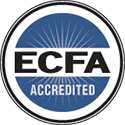Dealing with Dysphagia

Many of us take the act of eating and swallowing for granted. It’s just something we do every day, without giving much thought or appreciation for the complicated process of chewing and moving food from our mouths to our stomachs. However, for seniors with dysphagia, swallowing becomes difficult and painful, and eating can be a real struggle.
Dysphagia is the medical term for difficulty swallowing. Although occasional swallowing difficulties are normal from time to time, such as eating too quickly or not chewing well enough, persistent dysphagia is cause for concern and may require medical treatment.
What Causes Dysphagia?
Although dysphagia can occur at any age, it is more common in older adults. There are several potential causes of dysphagia, so sometimes it can be difficult to pinpoint the exact cause. Typically, this swallowing disorder is caused by damage or weakness in the nerves or muscles that control chewing and swallowing movements. Some common causes of dysphagia include:
- Poor dental hygiene or ill-fitting dentures
- Cognitive disorders, such as dementia or Alzheimer’s
- Stroke
- Acid reflux (GERD)
- Radiation therapy
- Mouth, throat, or esophagus cancer
- Certain medications
Symptoms of Dysphagia
The symptoms of dysphagia can become more severe over time. It’s important to keep a close eye on your senior loved one before, during and after meals to make sure there are no issues with chewing or swallowing difficulties.
If you see the following signs occur around mealtime, it’s important to discuss these issues with a medical professional.
- Pain during swallowing
- Difficulty swallowing
- Gagging, choking or coughing when attempting to swallow
- Feeling that food is stuck in the throat or chest
- Drooling
- Heartburn
- Hoarseness or a “gurgly” voice after eating or drinking
- Unexpected weight loss
Tips for Dealing With Dysphagia
If your loved one is living with dysphagia, there are a number of strategies and exercises you can try to improve the act of swallowing and make it easier for him or her to enjoy mealtime.
- Make sure your loved one is sitting upright while eating.
- Allot ample time for each meal to allow time for complete chewing.
- Schedule meals during times of the day when your loved one is alert and cooperative.
- Try smaller, more frequent meals throughout the day.
- Reduce distractions during mealtime so your loved one can focus on eating.
- Thicken liquids with pureed fruit or vegetables or try a commercial thickener. Thicker liquids are less likely to cause problems with choking and coughing.
- Consult with a speech-language pathologist or a registered dietician for advice on eating strategies and meeting nutritional needs.
Find Help at Advent Christian Village
If your senior parent or loved one is experiencing difficulty swallowing, it’s important to seek medical advice as soon as possible. At Advent Christian Village, our skilled and dedicated professional team of therapists have a reputation for providing quality senior care in a nurturing, comforting environment.
In addition to treating swallowing and speech disorders, ACV Rehab specializes in other short and long-term rehabilitation services for a wide range of conditions, including injuries, post-stroke rehab, mobility issues and joint replacements. For more information about therapy that makes a difference, contact us today.



